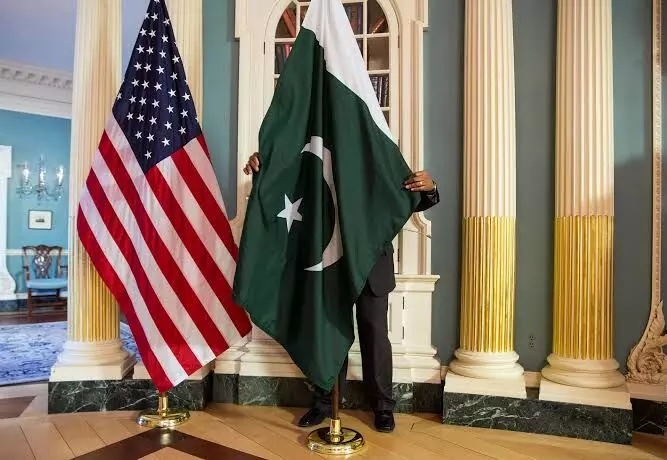Explained: Why India's Silence on US-Pakistan Bonhomie is Deafening

The smallest gestures carry the biggest weight in global politics. This holds true especially in the present context of US-Pakistan bonhomie. As the United States begins warming up to Pakistan again, it signals a shift in power dynamics that should have set off alarm bells in New Delhi. Instead, there is radio silence. And in that silence lies a worrying truth — India seems unprepared to deal with a reshaping of the geopolitical landscape in the subcontinent.
Pakistan's recent theatrics, including its bizarre proposal to nominate Donald Trump for the Nobel Peace Prize, are not just attention-seeking. They are part of a larger, more sinister plan. However, what is more worrisome is the fact that Washington is considering re-engaging with Pakistan, and this time it is not just about security ties. It's about rebuilding a relationship that the U.S. may find useful again in a post-Afghanistan world. That leaves India in an awkward, if not vulnerable, position.
When Old Equations Shift, Silence Is Not Strategy
For years, India had reason to believe that Washington was aligned with its concerns. The shared values of democracy, a common approach to counterterrorism, and the broader Indo-Pacific vision gave India a sense of strategic confidence. But global priorities change without prior warning. Now the U.S. is eyeing Pakistan for access to Central Asia and perhaps even for mediation with the Taliban. If Pakistan manages to sell itself as a peace partner or a regional stabiliser, it could find itself back in the good books of global power brokers.
Meanwhile, India has offered no counter-narrative. No public statement. No visible diplomatic pushback. It almost feels as if the government is more interested in managing optics than in shaping outcomes. For a country that prides itself on being a global voice, the quiet acceptance of this shift is deeply disappointing.
The Consequences of Looking the Other Way
Let’s not underestimate what this re-engagement could mean for India or regional balance. Restarting US military or strategic cooperation with Pakistan could affect the balance of power in the subcontinent. But worse would be the way it would embolden Pakistan to push to internationalise the Kashmir issue and present its stake as a “responsible actor” against India.
What India Should Be Doing, But Isn’t
There are real steps India can take, and should have taken already.
First, we need to stop believing that alignment with the West is a substitute for influence. The U.S. will act in its interest, as it always has. If we do not assert ours, no one else will.
Second, India must actively counter Pakistan’s growing visibility on the global stage. That means engaging with international media, think tanks, and policy forums. Simply stating our position at the UN every year is not enough. We need to go beyond these traditional measures and rethink our global positioning strategy.
Third, we must reconnect with our neighbourhood from Nepal to Sri Lanka. India's regional influence is not what it used to be. While we focused on global photo-ops, regional ties have weakened. That needs repair, with humility and intent.
Finally, we must return to building strategic autonomy. Not through slogans, but through action. This means strengthening ties with the European Union, ASEAN, and other emerging powers. It also means investing in our domestic capabilities so we are not overly reliant on any one alliance.
India Needs to Step Back into the Arena
Foreign policy is not performance art. It is hard work, done quietly. The resurgence of U.S.–Pakistan engagement is a moment that demands clarity, urgency, and action from India. But for now, all we hear is silence.
If our leaders continue to treat diplomacy as a public relations exercise, we risk becoming spectators in a game we once helped shape. Our government cannot continue to assume that international goodwill is permanent. It is not. It is built, negotiated, and protected — every single day.
(The writer is a versatile content professional with 20+ years of experience, specializing in customized, high-impact writing across education, PR, corporate, and government sectors.)
